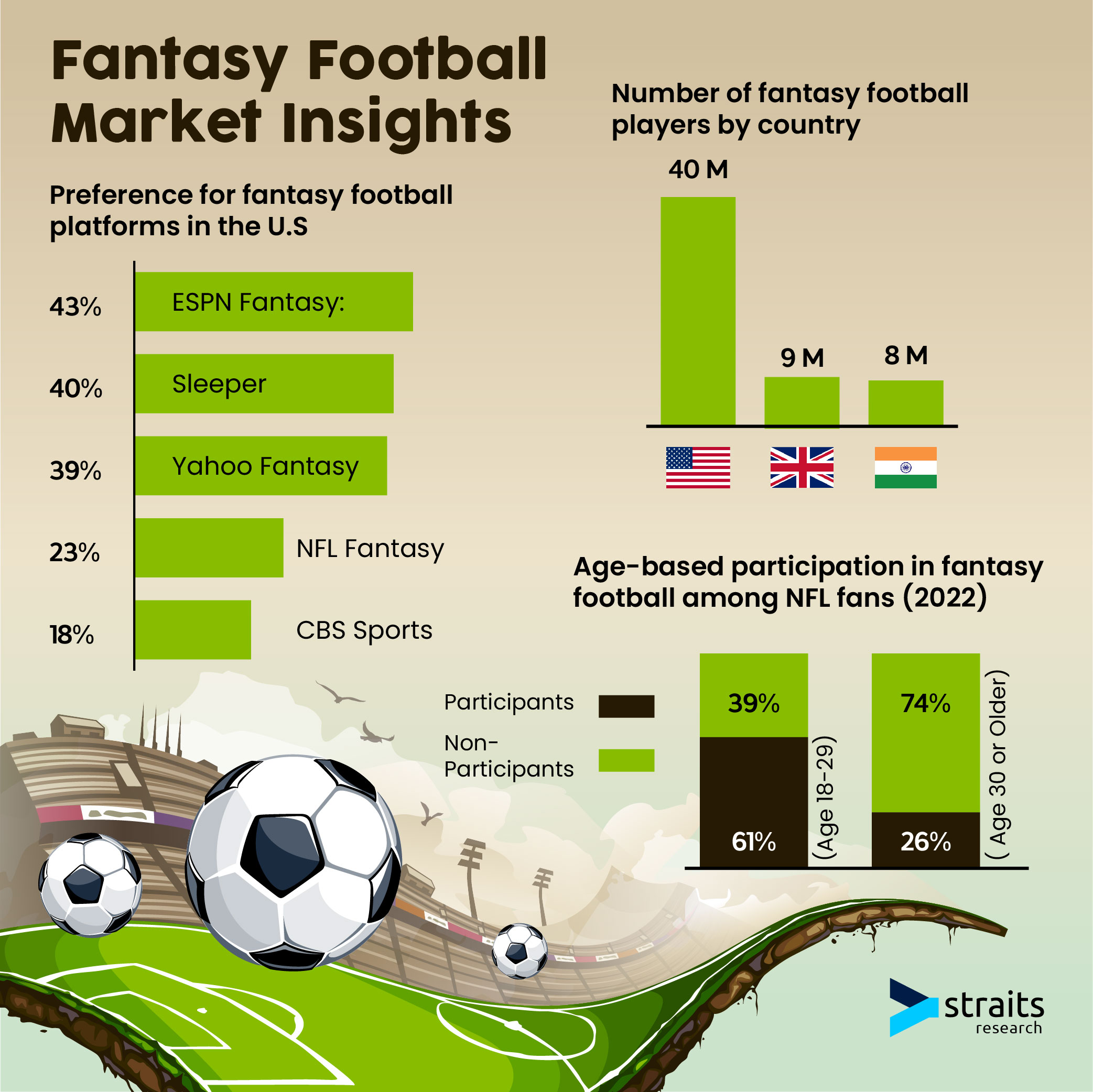Is Fantasy Football Boosting Office Morale or Becoming a Time-Consuming Distraction?

One of the most popular sports in the U.S. and throughout the world is fantasy football. One of the most played games today is fantasy football but the best part is that it's much more than simply a game. Many players who give it a try develop an addiction and never quit playing.
Participation and platform preferences
Fantasy football is extremely popular around the athletic world, and many NFL (National Football League) fans actively participate in fantasy leagues. A survey conducted in August 2023 revealed that 61% of NFL fans in the U.S. between the ages of 18 and 29 took part in a fantasy football league in 2022, while the remaining 39% did not. This participation dropped to 26% among NFL supporters aged 30 and beyond. The country with the largest fantasy football player base is the United States, with an astounding 40 million followers. The same experience is used by over 9 million people in the U.K. and fantasy football includes almost 8 million Indians who play regularly.
Easy usage was ranked as the top priority by 65% of respondents in a survey conducted in August 2022. Furthermore, 47% cited the value of platform/brand familiarity as a priority, while 38% sought platforms with live game feeds. For fantasy football players, picking the right platform is essential. The most popular fantasy football platform is ESPN Fantasy, which is preferred by 43% of U.S. adults. Sleeper comes in second with a 40% preference rate, followed by Yahoo Fantasy (39%), NFL Fantasy (23%), and CBS Sports (18%).
Economic Impact
Major corporations actively participate in the fantasy sports market, and fantasy football has developed into a profitable industry. Among the biggest players are Yahoo Fantasy Sports, CBS Sports, NFL Fantasy, and many more. The market for Fantasy sports was estimated to be worth USD 24 billion in 2021, and it is anticipated to increase to USD 78.5 billion by 2030, growing at a rate of 14% during the forecast period.
Fantasy football fan interaction has undergone a radical change because of Artificial Intelligence (AI). IBM Watson and ESPN have used AI to transform football data into insightful information. They enhance data analytics, forecasts, and the social component of the game to appeal to the millions of fantasy football fans. In fact, according to a recent Intel research, there is an increased demand for real-time, precise data with 75% of respondents saying they want it to help them in their leagues.
Fantasy football leagues can have both positive and negative effects on the workplace. The advantages of office fantasy leagues were recently highlighted by a 1,500-employee poll by Quantum Workplace, which found that those who participated in office teams scored higher on survey questions assessing coworker trust and teamwork.
However, excessive enthusiasm for fantasy football can lead to disruptive behavior in the workplace. Some people take the game very seriously, which might have an impact on productivity. A startling 96.6% of fantasy football players in the U.S. admit devoting work hours to their virtual teams, spending an average of 6.9 hours/week maintaining their teams. Every year, this leads to productivity losses totaling more than $16 billion.
Fans, the international sports industry, and even the workplace have been touched by fantasy football. Whether you're a dedicated fantasy football manager or just a casual player, this virtual game will continue to improve the experience. However, managers must be careful about its negative effects on the workplace, so that it doesn't undermine productivity.




